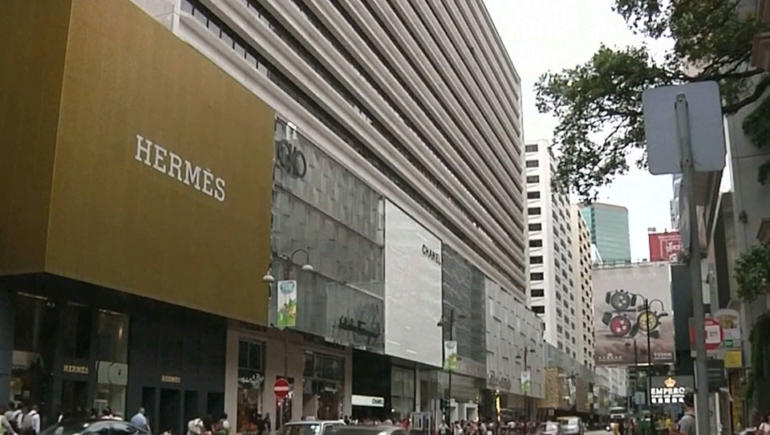Chinese consumers buy one-third of the world’s luxury goods. They’re the fastest-growing market for upscale brands. They’re also fueling a rapidly-growing market in used luxury goods, for younger shoppers who are looking for a bargain. CGTN’s Feng Yilei explains.
A rapidly growing appetite for luxury goods has made China the world’s biggest market in this niche area. The recent Bain Luxury Study predicts that China will account for half of all luxury sales by 2025. In a shop in central Beijing, these dazzling and delicate goods await buyers, but what’s special about these is –they’re all pre-owned.
“For us, the size of the second-hand luxury goods market is just as big as that for new luxury goods,” Derek Xue, general manager of Beijing Huaxia Komehyo Commercial & Trading Company said. “The trading volume of second-hand luxury goods in China is ascending very fast.”
Two years ago, when the Huaxia pawnshop started working with Japanese vintage retail giant Komehyo, only a small amount of high-end goods were flowing into the second-hand market. Today, this jointly-opened shop is feeding the needs of a considerable number of people, thanks to changing consumption attitudes.
“I think there’s a market for the younger generation,” shopper Gao Xin said. “We like having luxury accessories, but don’t use them every day. And we want to trade in the old for new styles after a while. It can also be a kind of investment and financing for some people.”
The shop manager said they still have much to do in consumer education, to encourage more to sell and buy used luxury goods in the interests of sustainability. But there’s another, more serious, challenge for the entire luxury goods industry — knock-offs.
To regular shoppers, a Lady Dior bag purchased online looks no different than one in a Dior store. Only experienced examiners can tell you whether it’s authentic or not, how much it’s been used and how much it’s worth.
A small miscalculation means both the company and consumer will pay a dear price. With a gap in evaluation standards and legal protection, preventing fraud is never easy.
“The top priority and core competence of this business is the assurance that we can identify the counterfeits and take better care of a used product for future use,” Derek Xue said. “Apart from that, dealers offer advantages in prices or after-sale services.”
The burgeoning industry is attracting a wide variety of participants. That includes boutiques like this, individuals working on their own networks, and even some well-known online trading platforms. Experts said they all have a long way to go.
Lydianne Yap on the growing market for luxury goods in China
CGTN’s Elaine Reyes talked with Lydianne Yap, marketing and communications director for the Digital Luxury Group, DLG, on the outlook for luxury goods sales in China.
 CGTN America
CGTN America
